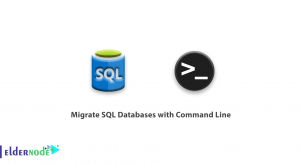
Welcome to our comprehensive guide on installing Docker on an Ubuntu Server! Docker is a powerful containerization platform that simplifies the process of managing and deploying applications. In this guide, we will walk you through the installation process with clear and concise steps. So let’s dive in and get Docker up and running on your Ubuntu Server hassle-free!
Prerequisites:
- An Ubuntu VPS Server instance (compatible with Ubuntu Server 18.04 and above).
- Sudo privileges on your Ubuntu Server instance.
Table of Contents
Step 1: Update and Upgrade Ubuntu Server:
Update the apt package lists and upgrade the installed packages by running the following commands:
sudo apt updatesudo apt upgradeStep 2: Install Required Dependencies:
Next, install the necessary dependencies to ensure Docker runs smoothly:
sudo apt install apt-transport-https ca-certificates curl software-properties-common
Step 3: Add Docker’s Official GPG Key:
Add Docker’s official GPG key to verify the authenticity of the Docker packages:
curl -fsSL https://download.docker.com/linux/ubuntu/gpg | sudo gpg --dearmor -o /usr/share/keyrings/docker-archive-keyring.gpgStep 4: Add Docker APT Repository:
Add the Docker APT repository to your system’s sources.list.d directory:
echo "deb [arch=amd64 signed-by=/usr/share/keyrings/docker-archive-keyring.gpg] https://download.docker.com/linux/ubuntu $(lsb_release -cs) stable" | sudo tee /etc/apt/sources.list.d/docker.list > /dev/nullStep 5: Install Docker Engine:
Perform the installation of Docker Engine by running:
sudo apt updatesudo apt install docker-ce docker-ce-cli containerd.ioStep 6: Manage Docker as a Non-Root User (Optional):
If you prefer running Docker commands without using sudo, add your Ubuntu user to the ‘docker’ group:
sudo usermod -aG docker $USERNote: Log out and log back in to apply the group membership changes.
Step 7: Verify Docker Installation:
Confirm that Docker has been installed successfully by running a simple test command:
docker run hello-worldIf everything working correctly, you can see ‘Hello from Docker!’ message confirming your installation.
Congratulations! You have successfully installed Docker on your Ubuntu Server. Now you can leverage its power to manage and deploy containers with ease.
Additional Tips:
– Remember to regularly update Docker to benefit from the latest features and security enhancements. Use the following commands:
sudo apt updatesudo apt upgrade docker-ce– Check Docker’s official documentation for detailed information on advanced usage, container management, and configuration options.
Happy containerizing with Docker on your Ubuntu Server!




